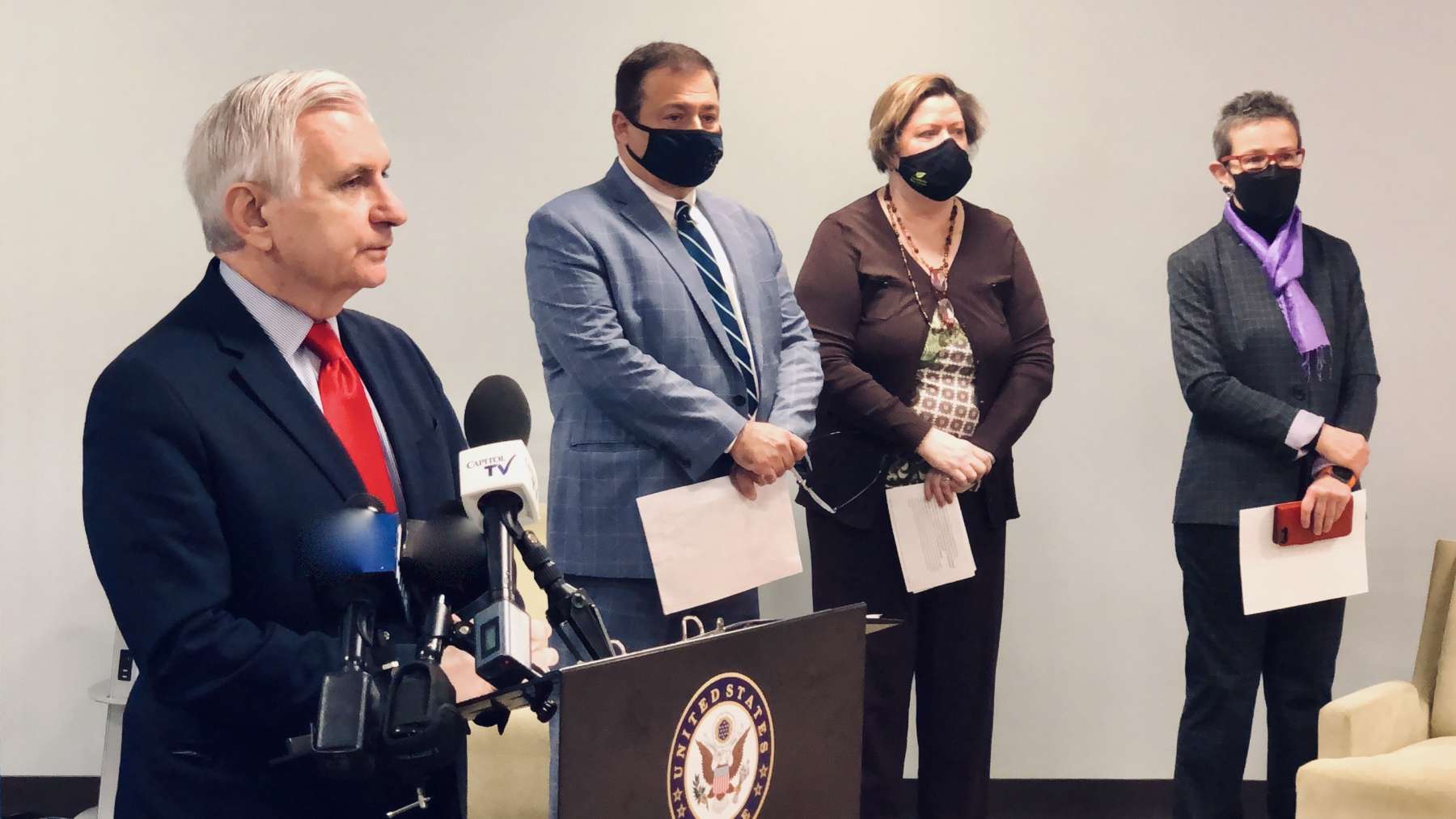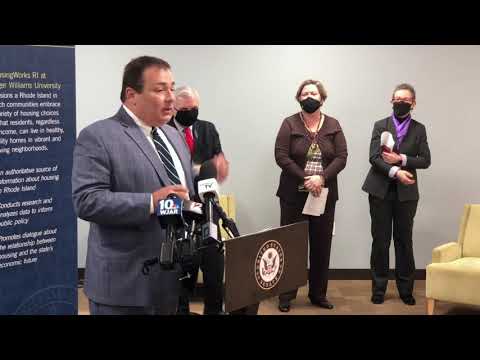Senator Reed, Speaker Shekarchi announce housing assistance money for Rhode Island
The influx of funds and the focus on housing “is a huge weight lifted off the shoulders of those of us who have been, over the last year, trying to protect and defend the safety of housing for people who would otherwise be put into the street and face the ravages of a global pandemic. I can’t even describe to you how profound this assistance is at this time.”
March 20, 2021, 10:27 am
By Steve Ahlquist
With the federal Centers for Disease Control and Prevention (CDC) eviction moratorium set to expire March 31, United States Senator Jack Reed (Democrat, Rhode Island) says it is critical for federal assistance to be made available to local families in need to prevent avoidable evictions and foreclosures.
On Friday morning Senator Reed joined Rhode Island House Speaker Joseph Shekarchi, Director of HousingWorks RI Brenda Clement, and Executive Director of the Rhode Island Center for Justice Jennifer Wood, to discuss how new federal housing assistance funds may be utilized to help keep renters and homeowners stably housed and improve public health and safety and access to affordable housing opportunities especially during the COVID-19 public health emergency.
Senator Reed spoke about the more than $225m in federal housing resources for Rhode Island in the recently enacted American Rescue Plan (ARP).
This is on top of the $152m in ARP funding Rhode Island received for emergency rental assistance, the $50m in housing help the Homeowner Assistance Fund brought to the state to help prevent avoidable foreclosures, and an estimated $23m to develop affordable housing for families at risk of homelessness, those fleeing domestic violence, and veterans. Additionally, the Senate delivered another $30m to help low-income Rhode Islanders pay their utilities through the Low-Income Home Energy Assistance Program (LIHEAP). Senator Reed also helped include language to expand access to housing counseling and assistance services for families facing housing instability, such as eviction, default, foreclosure, loss of income, or homelessness.
Speaker Shekarchi has pledged to make housing his top priority, and earlier this month announced a comprehensive package of legislation aimed at reducing many barriers to affordable housing in Rhode Island.
Housing legislation introduced in the Rhode Island House this session includes:
- H5951 would create within the Executive Office of Commerce a deputy secretary of commerce and housing, who will oversee housing initiatives and develop a housing plan that will include affordable housing, strong community building and neighborhood revitalization efforts.
- H5950 would create a legislative commission to study all aspects of land use, preservation, development, production, regulation, zoning, housing and the environment. The commission would make recommendations to enable the state to ensure and promote land use that allows for sustainable and equitable economic growth in support of efforts to achieve the state’s affordable housing goals.
- H5257 would prohibit housing discrimination against those who receive government assistance to pay their rent. A 2019 study by Southcoast Fair Housing found that although Housing Choice Voucher (HCV) recipients can afford more than one-third of listed apartments in Rhode Island, they are ultimately rejected from 93 percent. Over 9,300 households in Rhode Island rely on HCV to afford housing.
- H5953 creates a special legislative commission to study the Rhode Island Low and Moderate Income Housing Act. A similar commission led by former Rep. Shelby Maldonado was created in 2016, and made numerous recommendations, one of which was to continue studying ways to meet the state’s affordable housing challenges.
- H5954 extends for three years a tax exemption he originally sponsored to encourage more affordable housing development. The bill, which allows a tax exemption for properties under development until they are occupied, is set to expire Dec. 31.
- H5632 requires towns and cities to allow tiny homes to be used as accessory dwelling units and to be counted as affordable housing.
Not only is Brenda Clement, Director of HousingWorks RI, pleased with this large influx of federal funding, she’s glad that General Assembly leadership have realized that “we have to change how we’ve been doing things… Look at opportunities in now vacant commercial and retail space and reuse that space.”
The influx of funds and the focus on housing, said Jennifer Wood, Executive Director of the Center for Justice, “is a huge weight lifted off the shoulders of those of us who have been, over the last year, trying to protect and defend the safety of housing for people who would otherwise be put into the street and face the ravages of a global pandemic. I can’t even describe to you how profound this assistance is at this time.”










